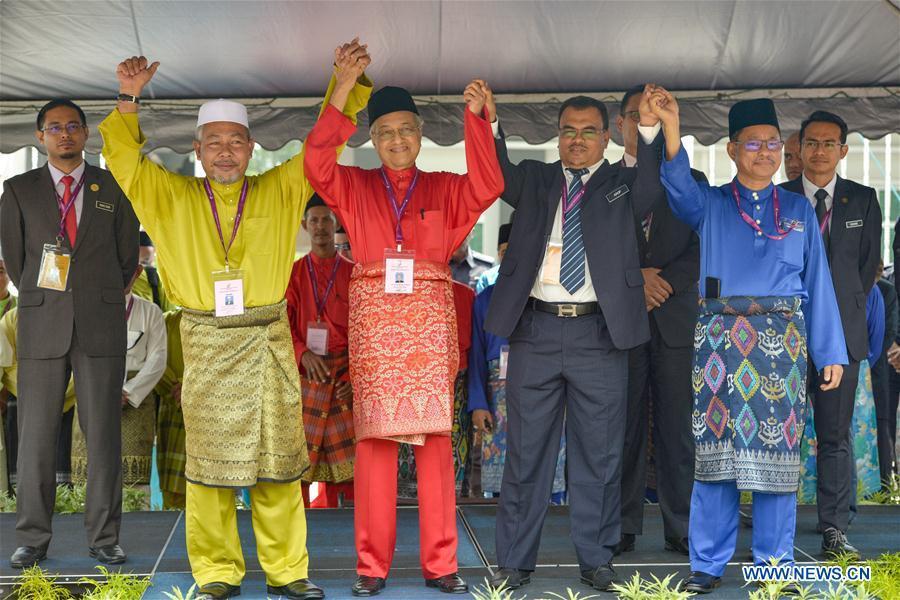PEKAN/LANGKAWI, Malaysia, April 28 (Xinhua) -- Candidates contesting the Malaysian general election submitted their nomination papers on Saturday morning, formally kicking off an 11-day election campaign in which the ruling Barisan Nasional (BN) coalition, led by caretaker Prime Minister Najib Razak, is seeking a new mandate.
Najib's party, the United Malays National Organisation (UMNO), has won every election since Malaysia's independence, together with BN, which also has the Malaysian Chinese Association and Malaysian Indian Congress as its two major component parties.
Before submitting his nomination papers on Saturday at Pekan, a parliamentary seat Najib held for more than four decades, he already led a charm offensive around the country to woo voters, promising generous handouts as well as infrastructure projects such as affordable housing and transportation facilities.
Gillian Rose Bryant Hernaez, a 21-year-old supporter for Najib, waited at a square in front of the Pekan nomination center with more than a dozen of her classmates, all of whom came from the University of Malaysia (Pahang). She told Xinhua that the BN government under Najib's stewardship helped reduce the burden of young people.
If BN wins, she said she hoped they can continue investment in public transportation and make it easier for her to travel between her hometown in the Borneo state of Sabah and her university.
Najib will face the challenge of Pakatan Harapan (PH), an opposition alliance led by his former mentor and Malaysia's longest-serving Prime Minister Mahathir Mohamad.
The 92-year-old Mahathir, who became the opposition's candidate for prime minister in January, registered for the general election in the northern island of Langkawi, which he had turned into a international tourist hotspot from a backwater island during his time in office.
Though already in retirement for 15 years, Mahathir still commands a lot of influence, with large crowds of supporters attending several of his campaign events.
Voters are yet to cast their ballot, but analysts have widely believed that BN would win the election. Merdeka Center, an opinion research firm, said in a report on Friday that BN might pull even lesser popular vote than in the 2013 general election but it can win more than the 133 seats gained from 222 contests that year.
Merdeka Center listed the exit of Malaysian Islamic Party from PH as a major reason of its defeat, saying it would mean a split vote. The Islamic Party won almost one third of the opposition seats in the last election.
PH is also banking on the defect of BN's core voters, mainly rural Malay voters who have been complaining about increasing living costs. But Merdeka Center said the swing of sentiments among the Malay electorate was not enough for PH to score a win.
It also said that the timing of polling day, which falls on Wednesday, could lower voter turnout.
In the election, up for grabs are 222 parliamentary seats and 505 state seats, including all states except the eastern Borneo state of Sarawak, which conducted its state election in 2017. A simple majority of 112 parliamentary seats will deliver a victory.
